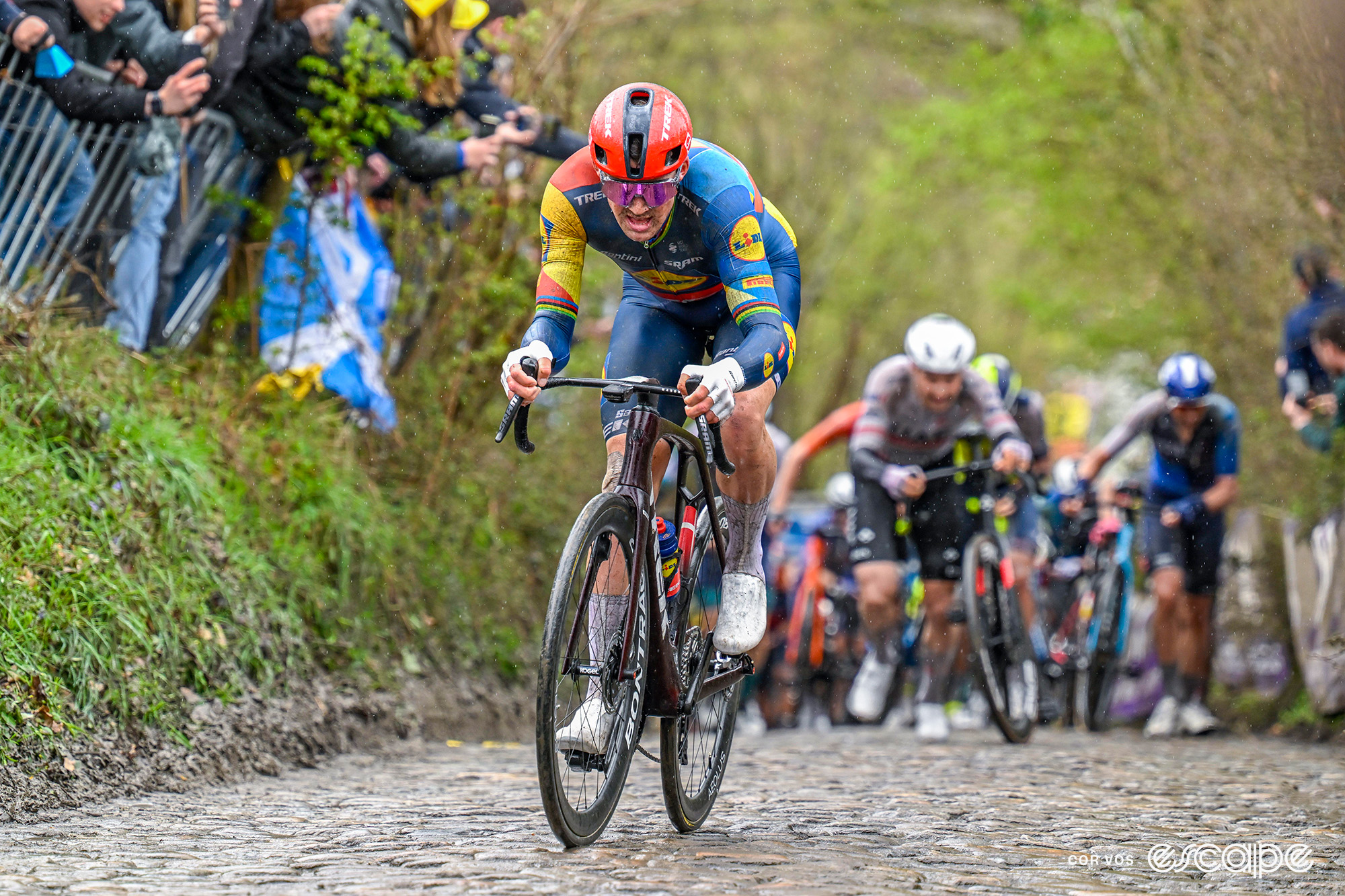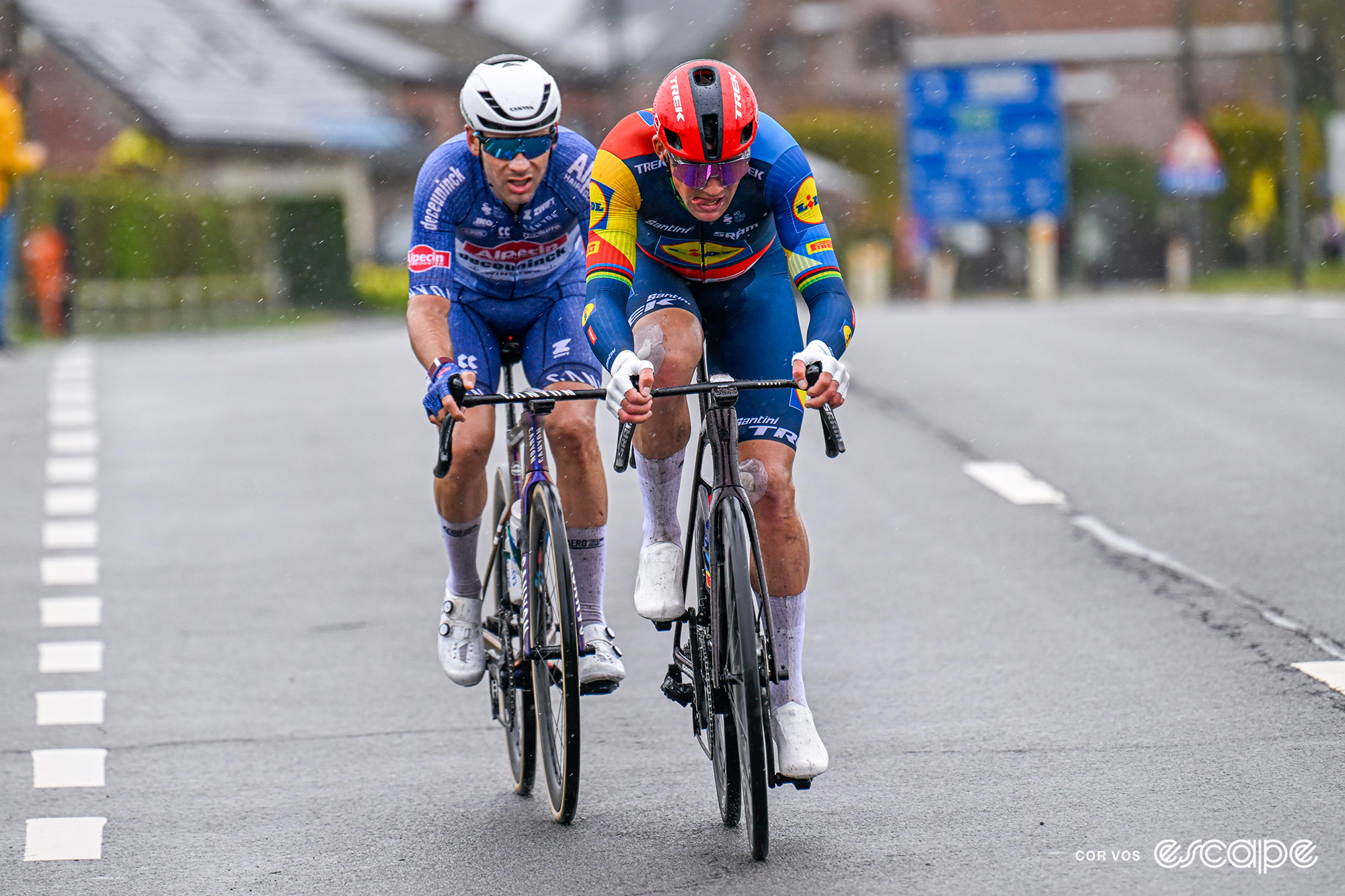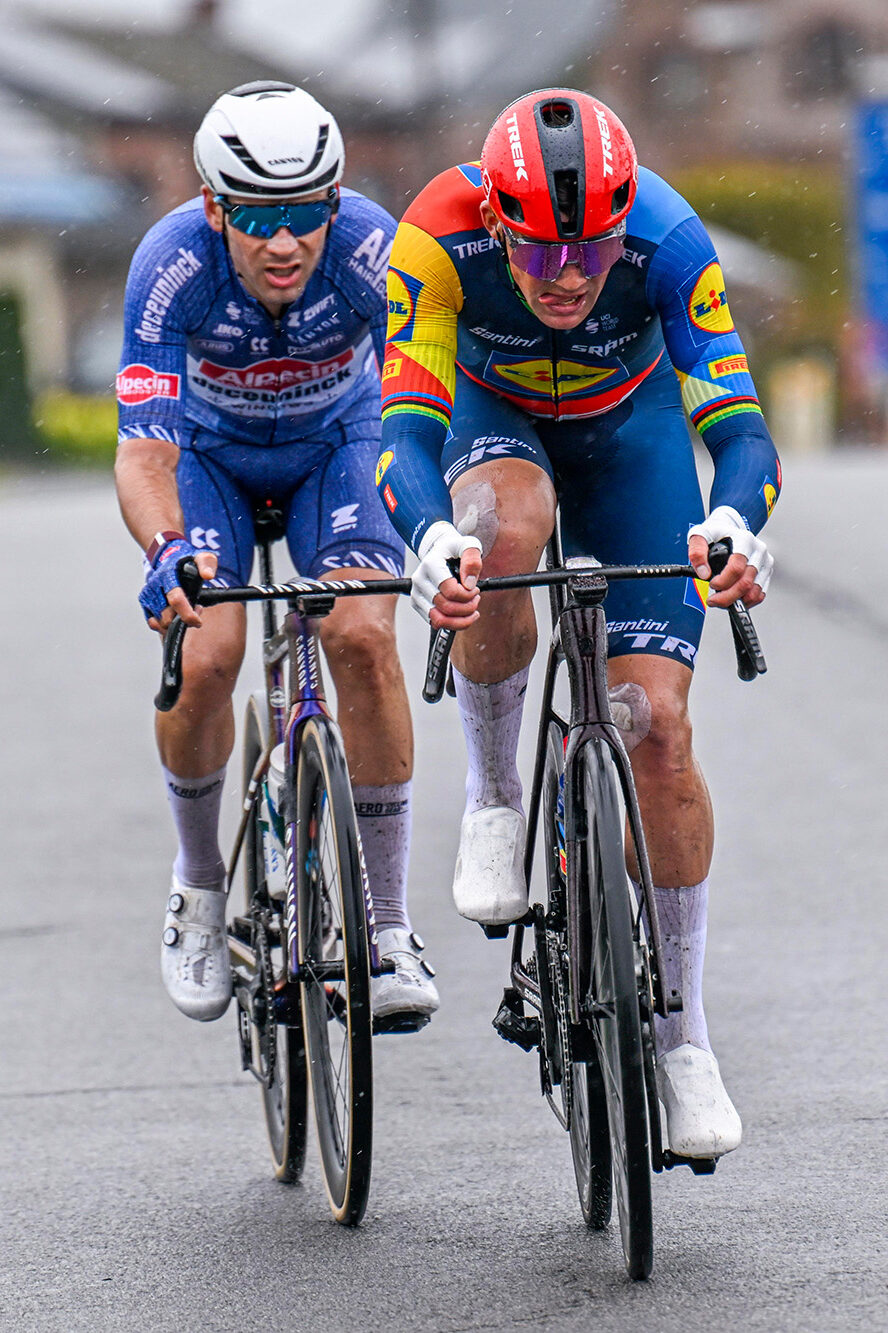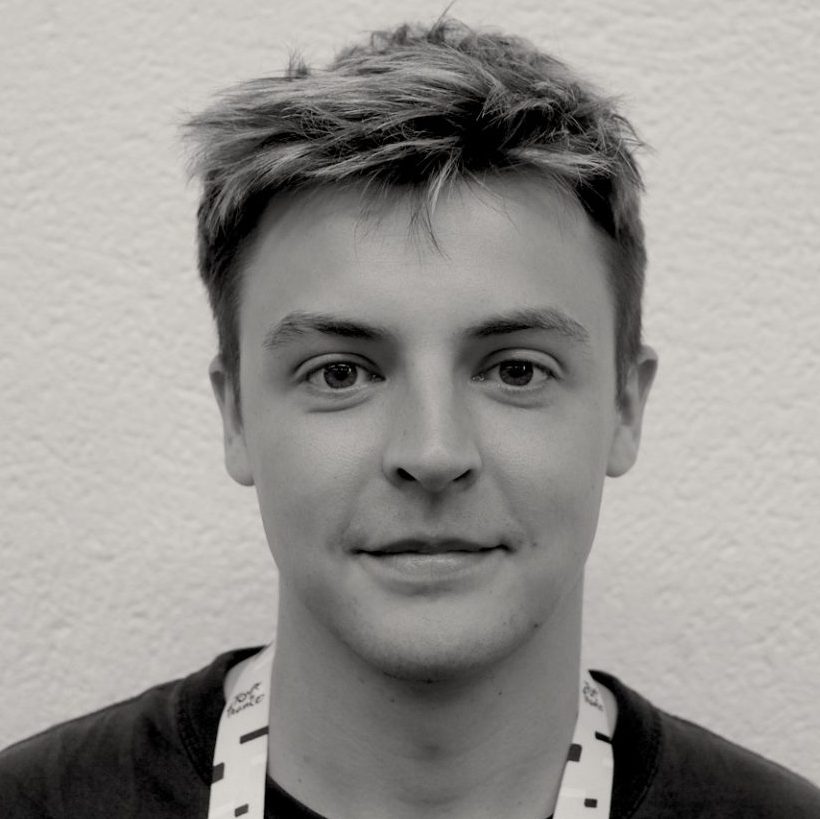What was he doing?
With 90 km to go, Mads Pedersen, maybe the second or third favourite for the Tour of Flanders, accelerated off the front of a front group already taking lumps out of each other, trying to isolate the eventual winner Mathieu van der Poel.
The world champion was in the midst of bridging back up to the front of the race when Pedersen, a former wearer of the rainbow bands and third here last year, set off on his own crazed mission.
With only Van der Poel’s teammate Gianni Vermeersch for company, Pedersen could hardly have won a worse move.
The Dane had been hoping to ignite another strong escape off the front, aided by other relative underdogs hoping to unseat the multiple De Ronde champ. Instead, Pedersen had an anchor along for company, and after 30 km they were caught and Van der Poel soon surged out of sight up and over the rain-slicked Koppenberg, stomping all over the dreams and attacking intent of his rivals who’d hoped to extinguish the Dutchman before the rain arrived and doused their Easter Sunday instead.
So what had been the plan?
“I didn’t have the extra power on the climbs,” Pedersen admitted at the finish, having crashed at Dwars door Vlaanderen on Wednesday, and likely counting his blessings that he’d made it to the start line at all as Wout van Aert watched from home with his various broken bones on the mend.
“I suffered a lot on the climbs and I didn’t have this [necessary] high power today, so I hoped the gap would have been a bit bigger so I could have gone a bit slower on the climbs and kept it in the power range I felt more comfortable in … but yeah, that plan didn’t work out well. Sometimes it pays off and sometimes it doesn’t and if you look at it now, maybe I should have done it different, but anyway, it wouldn’t have been a top result today.”
“I mean, you never plan exactly where you go. The plan was to go early …” added his Lidl-Trek teammate Toms Skujiņš.
“When Mathieu goes, you’re not going to be able to follow so you might as well be in front and hope that he catches you and takes you with him. And it’s not great when only one person goes with you.”
For Lidl-Trek sports director Grégory Rast, the situation wasn’t the one he’d necessarily envisaged before the start, and the former Classics specialist was forthright in his own opinion of what he’d seen out on the road.
“I think he went in the break and tried to go with [the mentality of putting] his head through the wall, but I think it was a bit of a stupid situation if we don’t call him back and try anyway,” Rast said of the eventual waiting of Pedersen and Vermeersch to be caught by the larger group of favourites behind them as the kilometres ticked down and the decisive finale approached.

“We wanted to go hard but I think basically he was alone … but I should have stopped him,” Rast admitted.
“But you didn’t stop him, or he didn’t listen?” the interviewer followed up.
“No, I didn’t do it because I remember the Tour of Flanders a year ago where we almost caught him but he still finished on the podium,” Rast explained. “But I think it was a mistake, yes.”
But could he have gone better if he’d waited, looking to follow Van der Poel instead of a pre-emptive voyage up the road?
“I think, yes,” Rast said. “This could have been a chance today.”
For the purer Classics racers, one of the beauties of Holy Week is that this is only half of the feast. Paris-Roubaix follows on Sunday and probably provides Pedersen with a better opportunity of victory with the form he’s found himself in this spring, and it will be hoped the injuries from Dwars will not hold him back again.
“Racing is the best thing he could do, we saw how he did and he didn’t do bad,” Rast assessed. “I think he made a tactical mistake, a big one, and I think he’ll do everything possible next Sunday.”
“Now I have seven days to recover and prepare,” Pedersen said. “I believe I will be 100% in seven days.”
The final results sheet reads Mads Pedersen: 22nd, two minutes and 41 seconds down on Van der Poel’s winning time. Directly behind him in 23rd on the same time? Gianni Vermeersch, in his wheel until the bitter, cold and wet end.
Did we do a good job with this story?


